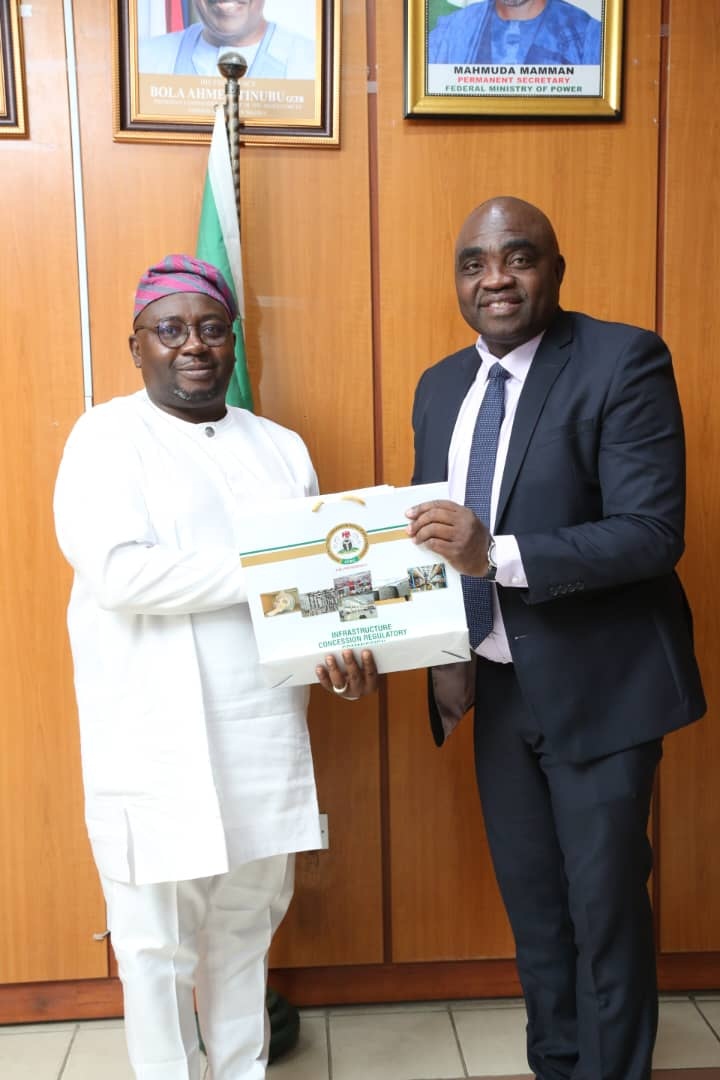The Federal Government of Nigeria has disclosed plans to source from the private sector, part of the 10 $10 billion required to provide regular electricity across Nigeria within the next five to 10 years.
The decision to adopt the PPP option for sourcing the fund was taken during the discussions between the Director General of the Infrastructure Concession Regulatory Commission (ICRC), Dr Jobson Ewalefoh, and the Minister of Power, Adebayo Adelabu, when the ICRC boss paid a courtesy visit to the minister on Tuesday in Abuja.
The duo agreed that in view of the funding and technical requirement needed to advance the power sector in Nigeria, it had become imperative to explore the Public Private Partnership (PPP) arrangement in co-financing and providing expertise that would ensure optimal performance of the power sector.
Speaking during the meeting, the ICRC Director-General said that in view of the importance of power to the economic development of Nigeria, optimizing performance of existing infrastructure as well as funding new ones was imperative.
While noting that the challenges in the sector was hydra-headed and went beyond funding alone, Ewalefor maintained that with such inter-agency collaboration and partnership with the private sector, the limitations can be addressed.
Reacting to comments by the Minister, the ICRC boss said that through its regulatory processes, the commission can midwife private sector investment of part of the $10bn in the power sector to provide regular electricity, attract more foreign direct investment to other sectors and ultimately grow the economy.
He clarified: “Revamping the power sector requires planning, it involves investments and it takes time. So, we need to collaborate to solve the issues in this sector.
“The investment required in power is very huge and government cannot fund it alone, so we have to leverage on the financing capacity of the private sector. That is why the ICRC was set up to regulate this leverage.
“The Commission is poised to regulating the processes of attracting investment to the power sector”, Ewalefoh added.
The Director-General described the appointment of the minister as justified based on his knowledge of the power sector, adding that in a bid to accelerate PPP investment as directed by President Bola Ahmed Tinubu, the Commission had issued a 6-point policy direction which has ultimately streamlined the process of PPP service delivery.
He stressed that whereas the processes had been streamlined to accelerate project delivery and encourage investors to adopt PPP, the ICRC was not compromising on its stringent regulatory function so as to forestall contingent liabilities or unnecessary delays by companies that lack the requisite capacity.
In view of the above, Ewalefoh added that the commission was now insisting on inserting conditions precedent to all PPP agreements such that any preferred bidder that defaults will have their agreement automatically nullified by reason of their default.
In his response the minister commended the Director-General for the visit the ministry with the proposal of advancing investment in power sector through PPPs.
He said: “For us to achieve 24 hours power supply across Nigeria in the next 5 to 10 years, there is a minimum funding requirement of about 10 billion dollars in the next 10 years.
“The government cannot afford that, when there are other critical sectors in need of funding.
“Can government do it alone? No. That is why we have to look for or marshal private sector fund while still retaining government interest and ownership. That is where ICRC comes in. We need to do this in collaboration with the private sector and the best way is through concession”, Adelabu added.






